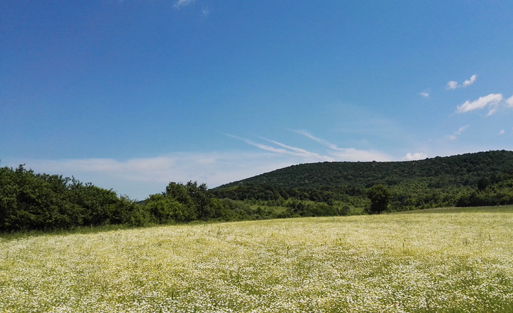INCI name: | Matricaria chamomilla |
Part used: | Flower |
Extraction method: | Distillation |
CAS No.: | 8002-66-2 |
Origin: | Bulgaria |
Appearance: | Dark blue or indigo blue mobile liquid |
Odour: | Rich blue chamomile German characteristic flavor |
Relative Density(20℃): | 0.982~1.025 |
Refractive index(20℃): | 1.4380~1.4570 |
Dissolved solution: | Volume 1 completely dissolved in three volume 90% ethanol |
Optical rotation(20℃): | –1°~ 4° |
Main Composition(%): | Alpha bisabolol bisabolol oxide farnesol half terpene lactones Chamomile shamrock hydrocarbon coumarin |
Matricaria chamomilla (synonym: Matricaria recutita), commonly known as chamomile (also spelled camomile), Italian camomilla,German chamomile,Hungarian chamomile (kamilla), wild chamomile or scented mayweed,is an annual plant of the composite family Asteraceae. Matricaria chamomilla is the most popular source of the herbal product chamomile, although other species are also used as chamomile. M. chamomilla has a branched, erect and smooth stem, which grows to a height of 15–60cm (6-24 inches). The long and narrow leaves are bipinnate or tripinnate. The flowers are borne in paniculate flower heads (capitula). The white ray florets are furnished with a ligule, while the disc florets are yellow. The hollow receptacle is swollen and lacks scales. This property distinguishes German chamomile from corn chamomile (Anthemis arvensis), which has a receptacle with scales. The flowers bloom in early to midsummer, and have a strong, aromatic smell. |  |